The French Uprising of 1968
For the briefest of moments, the doors of possibility seemed open and capitalism poised to fall.
In the place commonly referred to as France, the spirit of revolution may be weakened, but it never died. While most people of the Western world are dominated by a culture of apathy and meaningless division along artificial ideological lines in the sand, the French understand what the true driving forces behind poverty, exploitation, environmental degradation, and inequality are. What they always had been. No war but class war.
Likewise, the May 1968 protests in France were not just an exhibition of dissent; they were manifestations of deep-seated anger and frustration that had been brewing within the hearts of the French people for decades. The protests were a call to action, a demand for change, and a passionate expression of the yearning for a more just and equitable society. They signified the fury of a generation.
‘Beneath the pavement, the beach,’ or, in its original form, ‘sous les pavés, la plage’ — the slogan now used by anarchists and anti-capitalists around the world, first appeared on the walls and streets of Paris in that fabled year of 1968. Amidst the increasingly violent protests and strikes, students began ripping cobblestones off the streets and throwing them at police forces.
What they found beneath the streets, beneath the concrete and stone, those signifiers of a civilization designed to bend the world to its appetites, was just… sand. Nothing but plain old sand. Beneath all that we have built, all that artificiality of modern culture, all those comforts of modern life, all the progress, hierarchy, oppression, and constraint, lies just that: sand — the beach. From dust to dust and so on.
In that fateful year of ‘68, student protests erupted not just in France but all across the globe. They represented many things to many different sorts of people, but first and foremost they signified a desire for… something else. The people began imagining something beyond the confines of capitalism; a more progressive society — a society with true freedom.
The spark that ignited the flames of the French protests was a student demonstration that began on the streets of Paris on May 3, 1968. It quickly spread, as the workers of the nation joined the students in their calls for fundamental social and political change. This was no mere coincidence; the workers of France had been facing their own struggles and difficulties, and they too had grown tired of the status quo.
And so it happened that liberal students from well-off families joined forces with the working class — something today’s activists can, unfortunately, only dream of. This fact alone seems to me a momentous and truly revolutionary achievement.
A cornerstone of Marxist theory is the circumstance that, in reality, there exist only two classes: the proletariat and the bourgeoisie. Everything else is just the sort of artificial division that is propagated and promoted by the ruling order (the bourgeois) to undermine every effort by the working class (the proletarians) to form a united front. For the working class produces and maintains this world, and hence holds all powers (though it does not always appear so), it must, by all means necessary, be prevented from organizing. And how do you do that? — Easily: You divide the people along bullshit lines of nationality, skin color, religious interpretation, or party loyalty, and create an endless sequence of non-issues to solidify the walls between them.
That liberal students and working people (two groups with very different, often opposing views) fought side by side against oppression, is a remarkable fact and one that should be celebrated and imitated. There can be no change without unity, for the opponent possesses all the advantages and proven instruments of control (police, military, intelligence, surveillance).
In this context, unity should by no means be understood as uniformity, however. On the contrary, every revolutionary effort must embrace diversity, divergence, and decentralization. If it doesn’t, one is more likely than not to end up with the very same systems of control one initially fought against. A pig of a different color is still a pig.
The French protests of 1968 threw an entire country into a state of chaos and upheaval. The filthy masses of the young had come together to voice their collective displeasure with the state of affairs, and their calls for change echoed across the land and beyond. The ruling order wasn’t happy. They were furious.
Liberté, égalité, and fraternité were quickly thrown out the window, as the streets filled with tear gas and the sound of police truncheons pummeling the protesters’ bodies. Yet despite the violence and repression, the people of France refused to be silenced. At its high point, 11 million people (22% of the French population at the time) poured into the streets. They continued to march, chant, and demand their rights.
What started in universities, as students began rejecting autocratic teaching methods and professors who preferred to imagine themselves as petty dictators, upholding bourgeois definitions of morality and social stratification, became a country-wide phenomenon. In Nanterre, students invaded the comfortable university offices and demanded a say in the running of the campus. Although most of them grew up in comfortable circumstances of plenty, they began embracing Marxist and anarchist theory and calling themselves the proletariat.
When the authorities shut down the campus in Nanterre entirely, the protests shifted to Sorbonne, in the heart of the metropolis of Paris. Barricades were erected, property damaged, and the pavement was torn apart. Police forces appeared in considerable numbers and the pictures of them brutally beating up students went around the world. That is when the workers, organized by unions, saw an opportunity. Maybe this was the change everyone had been waiting for? Hoping for. Years, decades, centuries…
Millions of them poured into the streets and paralyzed the country. Schools and shops were closed, services broke down, garbage was not collected, public transportation became impossible. The established templates of cobblestone were disintegrated to make place for something new. The sand, the beach under them, became a haven of opportunity and new visions of the future. It was a time of vibrant, stimulating discussion, with the taboos of capitalist realism discarded to make place for the erection of new foundations. Book sales increased; Marx, Lenin, Mao, and Kropotkin, Malatesta, and Goldman, and many others — the shackles seemed off.
Then-president Charles de Gaulle, a leader of the French resistance during the Second World War, left office shortly after the protests, during which he repeatedly laughed off the movement (“Be young and shut up”). Georges Pompidou, his successor, eventually negotiated with the unions and got the workers to return to work.
So what then did the protests achieve, exactly?
There were some, more or less significant, changes. Working conditions and pay improved, universities became more open-minded, and… nothing much else. It has to be said for it is true. For a brief moment, a nation was turned upside down, the sacred economy brought to a halt, and the door of possibility pushed open so very slightly — and then the match burned out as quickly as it was lighted. The uprisings of 1968 marked an important milestone in the demand for social change, yes, but in the end, as Linkin Park reminds us, it doesn’t even matter.
The generation that started these protests then continued to sell themselves and the world. There is no use in blaming them, for they did exactly as almost all before them did. The rebellious vein that runs through society is like the ebb and flow of the oceans. It comes and goes in complex patterns. Sometimes, on very rare occasions, they push open doors of possibility. On even more seldom occasions, some people gaze through them and report from the other side.
I’m author, writer, and activist Antonio Melonio, the creator of Beneath the Pavement. If you enjoyed this piece, please consider becoming a paid subscriber here on Substack or over on Patreon. It’s the best way to support Beneath the Pavement and help me put out more and higher-quality content.
If monthly contributions are not your thing (I understand), you can also leave me a tip or some coffee money over on PayPal. Thank you.
Sources and further reading
Beneath the Pavement, the Beach: Paris in 1968 | Department of History (utk.edu)
Bourg, Julian. From Revolution to Ethics May 1968 and Contemporary French Thought Montreal: McGill-Queen’s University Press, 2007, 25.
Ross, Kristin. May ’68 and Its Afterlives. Chicago: University of Chicago Press, 2002, 3.
Frédéric Joignot, “La ‘chienlit’, une histoire d’un mot de Rabelais à Sarkozy” Le Monde (10 October 2015). https://www.lemonde.fr/politique/article/2015/10/15/chienlit-ce-mot-mis-a-l-index_4790489_823448.html




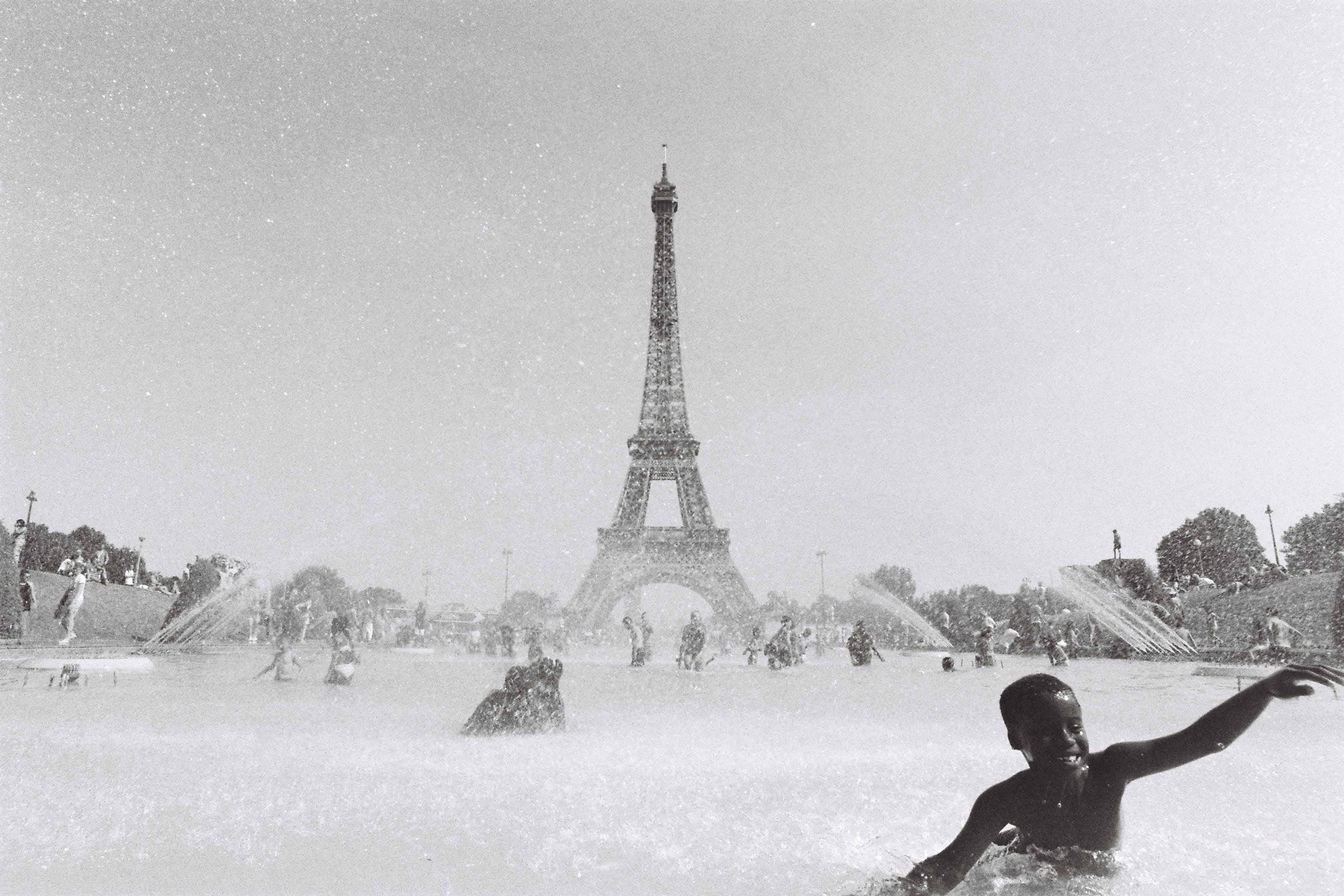
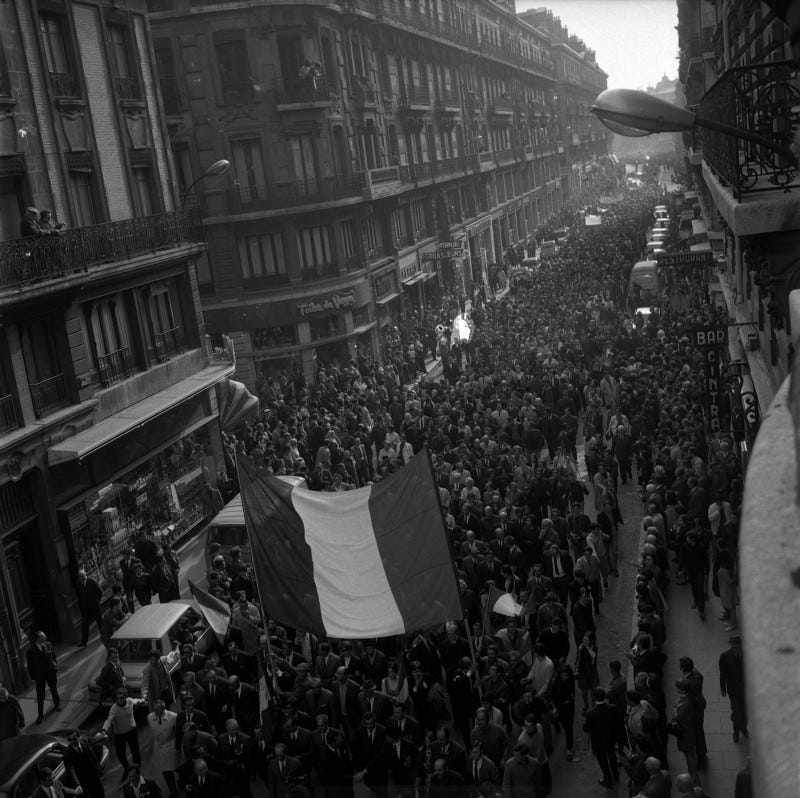
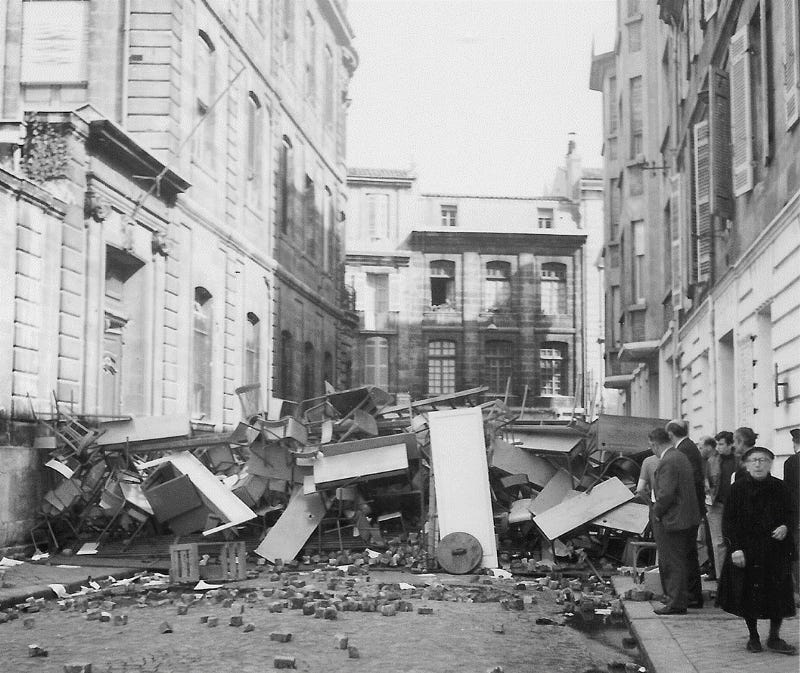
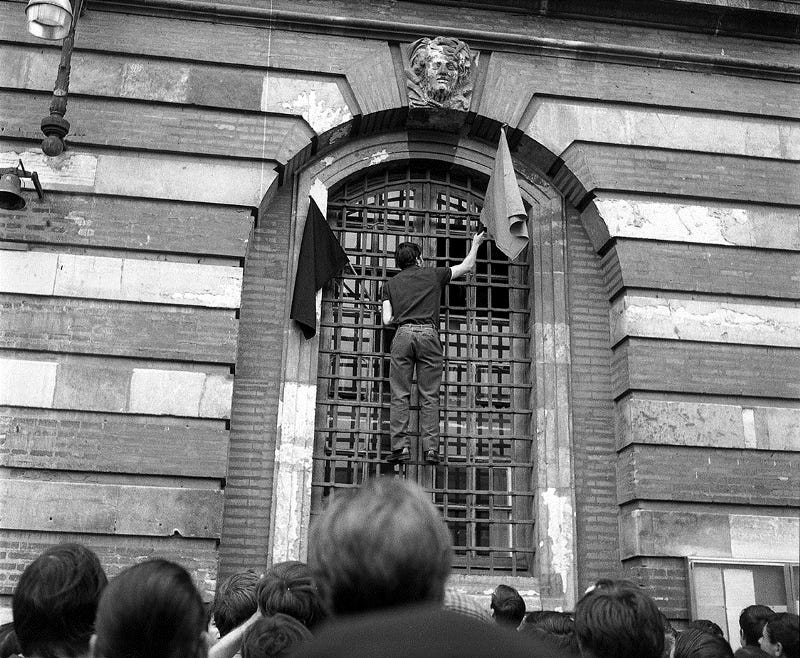
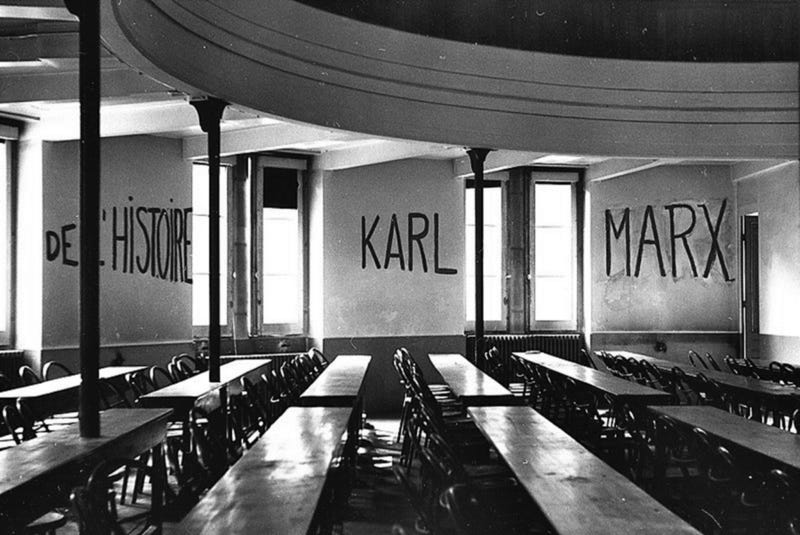
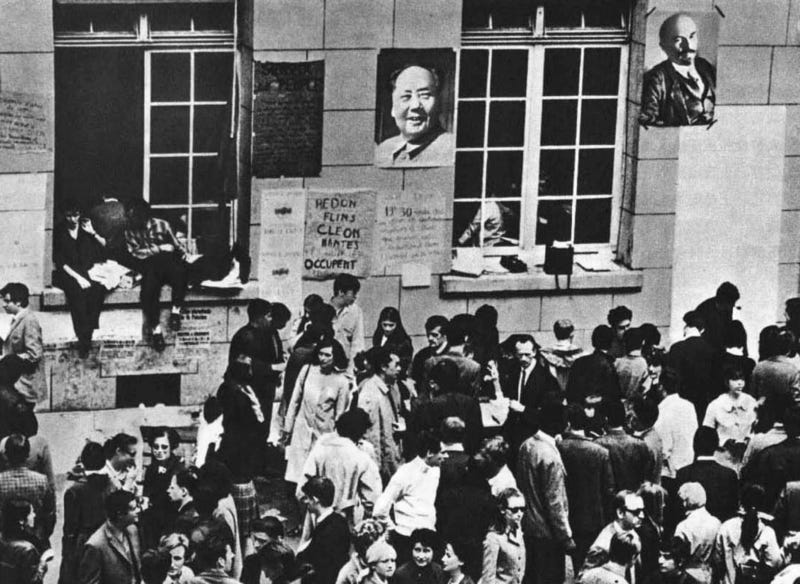
I appreciate this snapshot in history. It's a reminder that the change does not happen from one event, from a single effort even when unified across divides. But from diligence and persistence with an eye never taken off the vision. I'm working on a novel set in '68 and even though it's set in the US, this all ties in to the story. One character, half American half French, was taken to be raised in Paris. As an adult, he has just come back to the US but still has strong ties to France. The novel begins in April, just after the MLK shooting so the Paris events in May would certainly affect him. Your article and the additional resources will be very useful. Thank you!